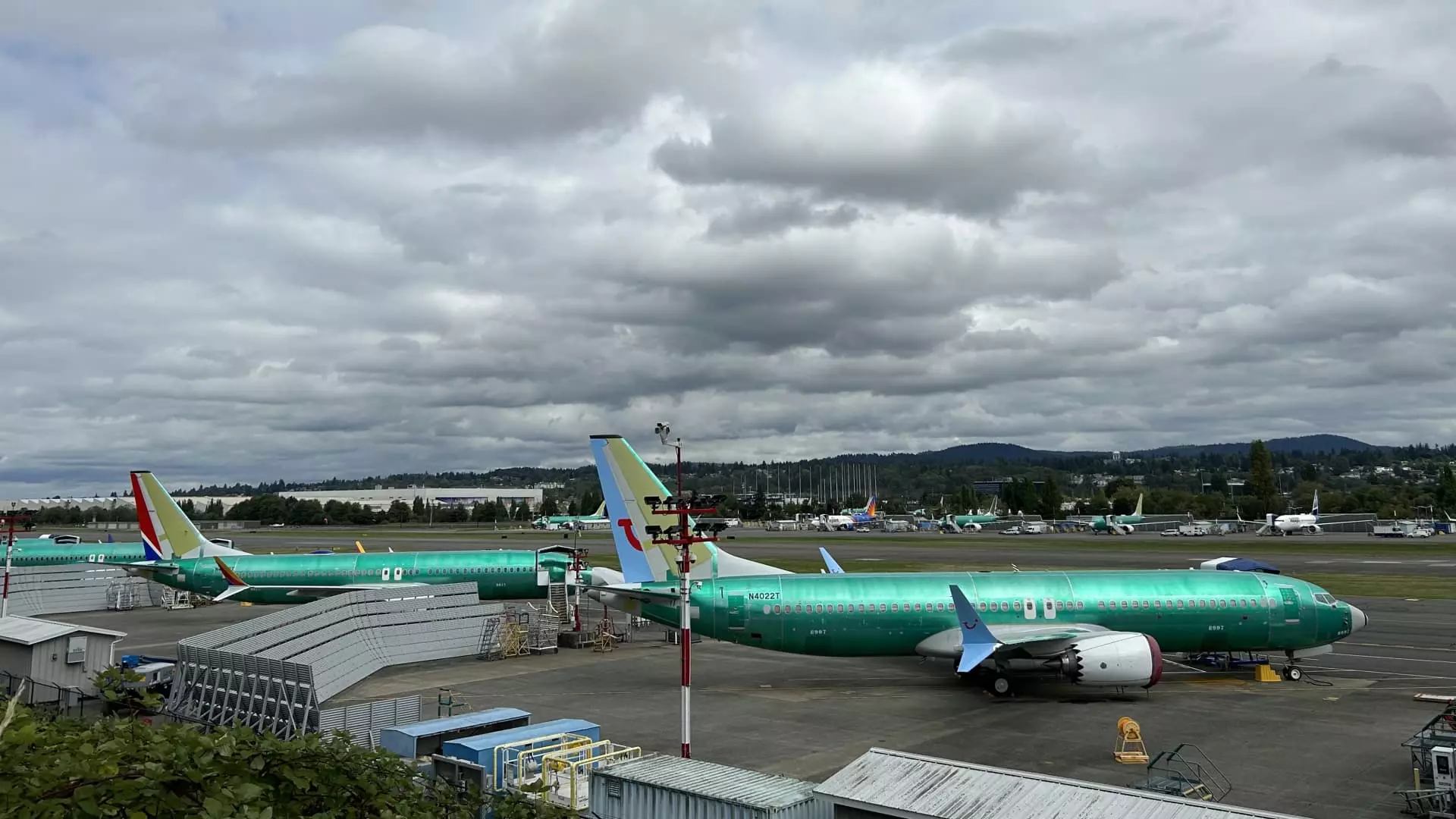In the competitive landscape of commercial aviation, Boeing has faced significant challenges throughout 2024. The company’s inability to match previous delivery numbers is glaring, with only 348 airplanes delivered—about a third less than the previous year. This decline is particularly concerning as it has widened the gap between Boeing and its major competitor, Airbus, which delivered an impressive 766 jets last year, marking its most successful year since 2019. Compounded by production halts due to external factors, including a severe machinist strike and the aftereffects of a troubling midair incident involving a door panel malfunction, Boeing’s performance has come under scrutiny.
Production Hurdles and Recovery Efforts
Deliveries are undeniably the lifeblood of aircraft manufacturers; they represent the point at which customers pay a significant portion of the aircraft’s cost. After nearly eight weeks of halted production due to the strike, Boeing resumed deliveries in December, managing to hand over 30 airplanes, primarily its flagship 737 Max. The restart signals a potential return to stability, yet it underscores the precarious nature of the company’s operations. Although there was a small uptick in activity towards the year’s end, several questions remain regarding Boeing’s long-term production capabilities and the strategies to grow their market share.
An adverse consequence of these delivery setbacks and supply chain hindrances is the rising cost of aircraft leasing. Aviation data firm IBA reported that lease rates are expected to reach record highs this year as suppliers struggle to fulfill their orders. This trend complicates financial arrangements for airlines, particularly for those seeking to expand or replace older fleets. As a result, the overall health of the aviation market may be influenced not just by new deliveries but by the affordability and availability of leasing options for airlines.
Boeing’s order book presents a more complex narrative. In December alone, the company secured 142 gross orders, including significant commitments for 100 737 Maxes from Turkey’s Pegasus Airlines and 30 787s from flydubai. However, this optimism belies the fact that Boeing had to remove over 130 orders attributed to Jet Airways, which is now defunct. Overall, the company finished the year with 569 gross orders and 377 net orders, raising concerns about the sustainability of these figures in the coming years. In contrast, Airbus concluded 2023 with robust figures, logging 878 gross orders and a net total of 826.
Looking Ahead
As Boeing’s leadership prepares to address investor concerns in the upcoming earnings call on January 28, the real question is whether the company can implement effective strategies to increase production and regain its market position. With supply chain difficulties persisting and competition tightening, a commitment to innovation and transparency will be crucial for Boeing to navigate the complex landscape of commercial aviation in 2024 and beyond. The path forward will require a delicate balance between operational efficiency and the need to meet the growing demand for air travel against an uncertain backdrop.


Leave a Reply